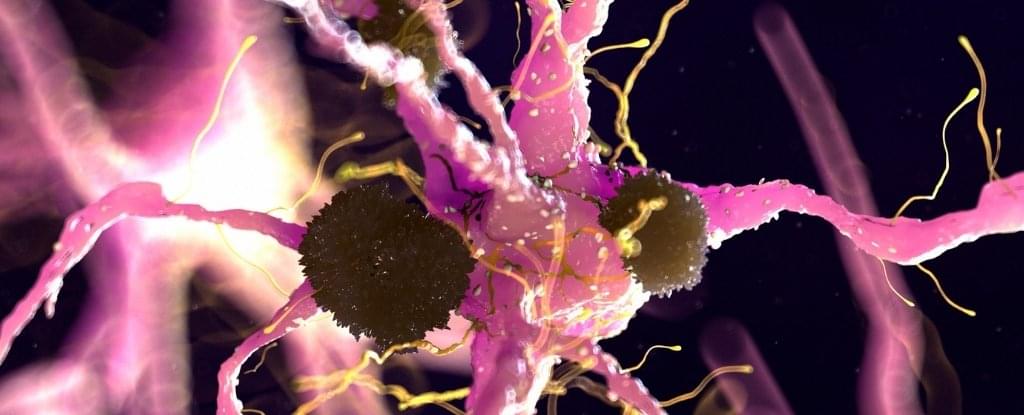Malicious NuGet package mimicking Nethereum stole crypto wallet keys using homoglyph tricks and fake downloads.



Meta has announced new tools to help WhatsApp and Messenger users protect themselves from potential scams and secure their accounts.
On Messenger, the company has started testing more advanced scam-detection for suspicious chats that will warn users when a new contact sends a potentially scammy message, giving them the option to send recent messages for AI scam review to check for signs of a scam.
When a potential scam is spotted, users will be alerted and provided a set of suggested actions, such as blocking or reporting the sender.


An international consortium of researchers has created the largest-ever database compiling records of brain activity during sleep and dream reports. One of the first analyses of the database confirmed that dreams do not occur only during REM sleep, but also during deeper and calmer NREM stages. In these cases, brain activity resembles wakefulness more than deep sleep, as if the brain were “partially awake.”
One third of a healthy adult’s life is spent sleeping, and a significant portion of that time is spent dreaming. Throughout the night, during any sleep stage, subjective conscious experiences, what we call dreams, can repeatedly occur.
Interest in dreams dates back thousands of years, from ancient Egypt to ancient Mesopotamia and ancient Greece, and spans many cultures and traditions.

Researchers have discovered how a surface protein on brain cells, called Aplp1, can play a role in spreading material responsible for Parkinson’s disease from cell to cell in the brain.
Promisingly, an FDA-approved cancer drug that targets another protein – Lag3 – which interacts with Aplp1 – was found to block this process in mice. This suggests a potential treatment for Parkinson’s may already exist.
In a paper published last year, an international team of scientists detailed how the two proteins work together to help toxic clumps of alpha-synuclein protein get into brain cells.

According to the Institute for Artificial Intelligence at Peking University, a research team led by Researcher Sun Zhong and his collaborators has recently published a paper in the international journal Nature Electronics, reporting a major breakthrough in novel computing architectures.
The team successfully developed a high-precision and scalable analog matrix computing chip based on resistive random-access memory (RRAM). For the first time, the chip achieves analog computation accuracy rival to that of digital systems, improving the precision of traditional analog computing by an astonishing five orders of magnitude.
Performance evaluations show that when solving large-scale MIMO signal detection and other key scientific problems, the chip’s computational throughput and energy efficiency are hundreds to thousands of times higher than those of today’s top-tier digital processors (GPU).


Researchers at the University of North Carolina (UNC) have developed microscopic flower-shaped soft robots made from DNA and inorganic materials that can fold, bend, and react to their environment. Detailed in a paper published in Nature Nanotechnology, these microscopic DNA “flowers” are a potential new method for targeted drug delivery and other biomedical applications.
“People would love to have smart capsules that would automatically activate medication when it detects disease and stops when it is healed. In principle, this could be possible with our shapeshifting materials,” said senior author Ronit Freeman, PhD, and associate professor at USC and leader of a research group that is seeking to develop novel designer materials using self-assembling biological components.
The DNA flowers are assembled from hybrid DNA, inorganic crystals that respond to environmental stimuli such as changes in acidity (pH), enabling reversible changes in shape—shrinking, bending, and folding—within seconds. The petals can open or close in response to local environmental conditions, motion that can be used to trigger a chemical reaction, release molecules, or interact with tissues.


A powerful new telescope has captured its first glimpse of the cosmos, and could transform our understanding of how stars, galaxies and black holes evolve.
The 4MOST (4-meter Multi-Object Spectroscopic Telescope), mounted on the European Southern Observatory’s VISTA telescope in Chile, achieved its ‘first light’ on 18 October 2025: a milestone marking the start of its scientific mission.
Unlike a typical telescope that takes pictures of the sky, 4MOST records spectra—the detailed colors of light from celestial objects —revealing their temperature, motion and chemical makeup. Using 2,436 optical fibers, each thinner than a human hair, the telescope can study thousands of stars and galaxies at once, splitting their light into 18,000 distinct color components.